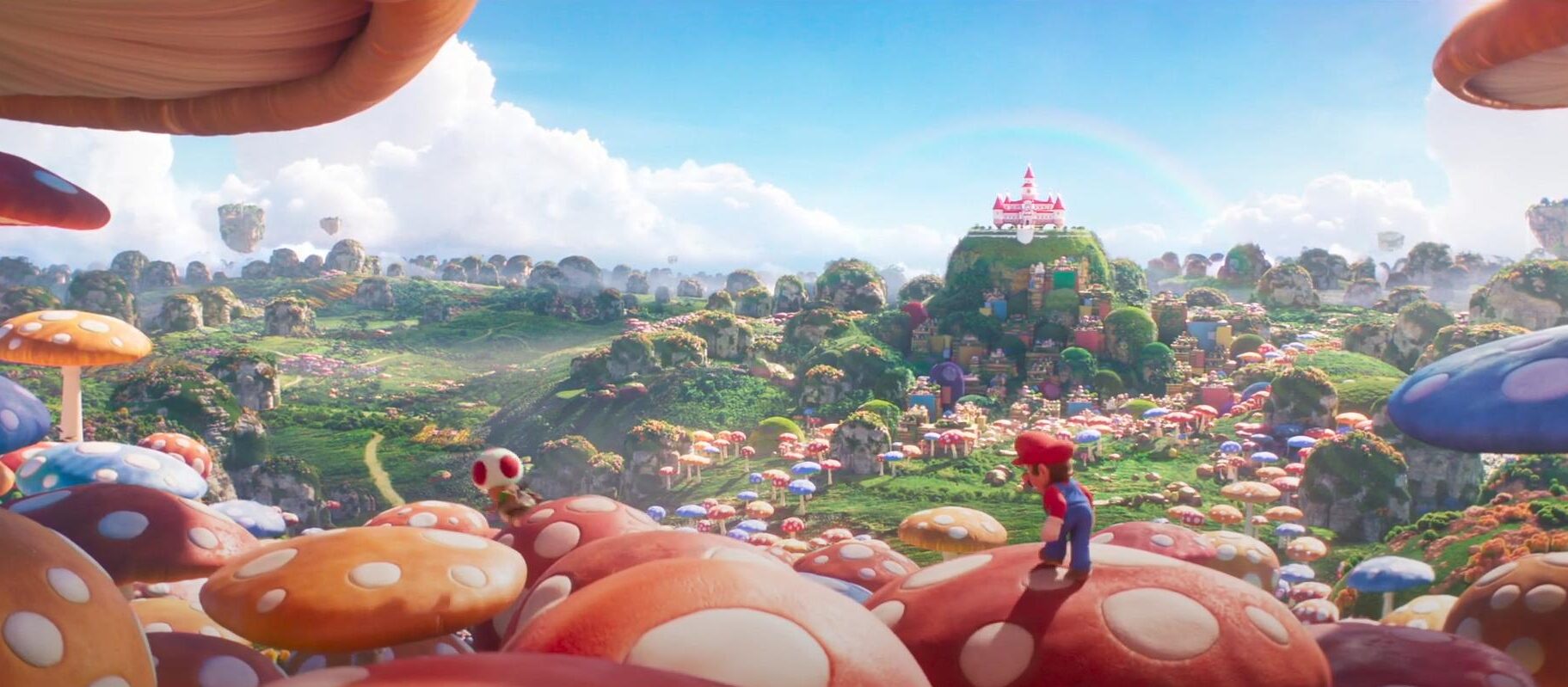

“A mustachioed human has arrived in the Mushroom Kingdom.”
My biggest takeaway from The Super Mario Bros. Movie—which overall is a pleasant, family-friendly, animated adventure film characterized by its Nintendo deep cuts and meme humor—is that it reinforces my pet notion that Jack Black is a national treasure. And not only that he’s a national treasure, but that he deserves consideration as an auteur.
The criteria by which the critical establishment deems a filmmaker an auteur are nebulous at best, and it’s usually directors who get tagged as such, but a definition would read something along the lines of “an individual whose approach to their craft is distinctive and personal to the degree that it produces a consistency in style or theme that is recognizable throughout their body of work.” I would posit that Jack Black’s ability to manifest roles in a variety of genres that allow him to perform musical comedy is a fairly distinctive stamp. High Fidelity, School of Rock, Nacho Libre, Be Kind Rewind, Bernie—these films would be unrecognizable without Black as a focal point and without his spunky rock ‘n’ roll swagger.
Aaron Horvath and Michael Jelenic, directors of The Super Mario Bros. Movie, seem to understand that Black is the ace up their sleeve. Chris Pratt’s casting as Mario initially drew some criticism because of his politics—I mean because he’s not of Italian descent. Or something like that. But he’s fine as Mario, really. Indeed, every voice actor here is basically fine. Except Jack Black—he’s not just good as Bowser; he’s irreplaceable, doing work on par with his previous voice acting roles in Kung Fu Panda and Brütal Legend.
Consider that the film’s most iconic moment is a cheesy love song that Jack Black threw together in a couple of days. It’s not when Mario first meets Toad (Keegan-Michael Key) or Peach (Anya Taylor-Joy), or when Donkey Kong (Seth Rogen) is introduced with the “DK Rap” from Donkey Kong 64, or when the Koopa Army ambushes the heroes on the Rainbow Road, or when Mario saves Luigi (Charlie Day) from certain death. Perhaps even more important for this exceedingly tangential discussion is that it’s also not a moment involving one of Koji Kondo’s numerous quintessential Mario theme songs (reworked here by Brian Tyler) or any of the popular licensed tracks (“Thunderstruck”, “No Sleep Till Brooklyn”, “Take On Me”, “Battle Without Honor or Humanity”).
Nope, it’s when Bowser is holed up in his private lair, lovelorn, tickling the ivories and pining after Princess Peach. It’s an incredibly simple power ballad, with a chorus that goes, “Peaches, peaches, peaches, peaches, peaches, peaches, peaches, peaches, peaches, peaches, I love you.” It will be stuck in your head for days after seeing the movie, and is so obviously the film’s highlight that a redux appears halfway through the credits. Was this song in the original script? No. Would it have ever seen the light of day if Jack Black hadn’t signed on to play Bowser? Not a chance. And yet, it’s the defining moment of The Super Mario Bros. Movie.
I could rag on the film for its shortcomings as a work of art or whatever—in the end, it is pretty much a hollow assemblage of videogame references (I spotted nods to a slew of mainline Mario and Donkey Kong games, and to Kid Icarus, Star Fox, Punch-Out!!, Duck Hunt, and F-Zero; the Internet tells me there are even references to esoteric old titles like Wrecking Crew and Balloon Fight), however deftly arranged and wonderfully animated—but as far as the stewardship of Nintendo’s billion-dollar IP is concerned, The Super Mario Bros. Movie is exactly what it is supposed to be. It was made to sell itself and double as an ad for the Nintendo brand in general, and thus takes few real risks—besides Black’s belting, the only other unexpected but crucial inclusion is Jelenic’s daughter Juliet Jelenic as the voice of Lumalee, a cute little star-shaped creature held captive in Bowser’s dungeon whose childlike voice contrasts with its nihilistic longing for the sweet release of death. One can hope that after this thing bonks its head into the question-mark block enough times to gross ten times its budget, and sequels and spinoffs are inevitably greenlit, that Illumination and Universal will remember that the live sparks of creativity from luminaries like Jack Black are what give films like this one personality.